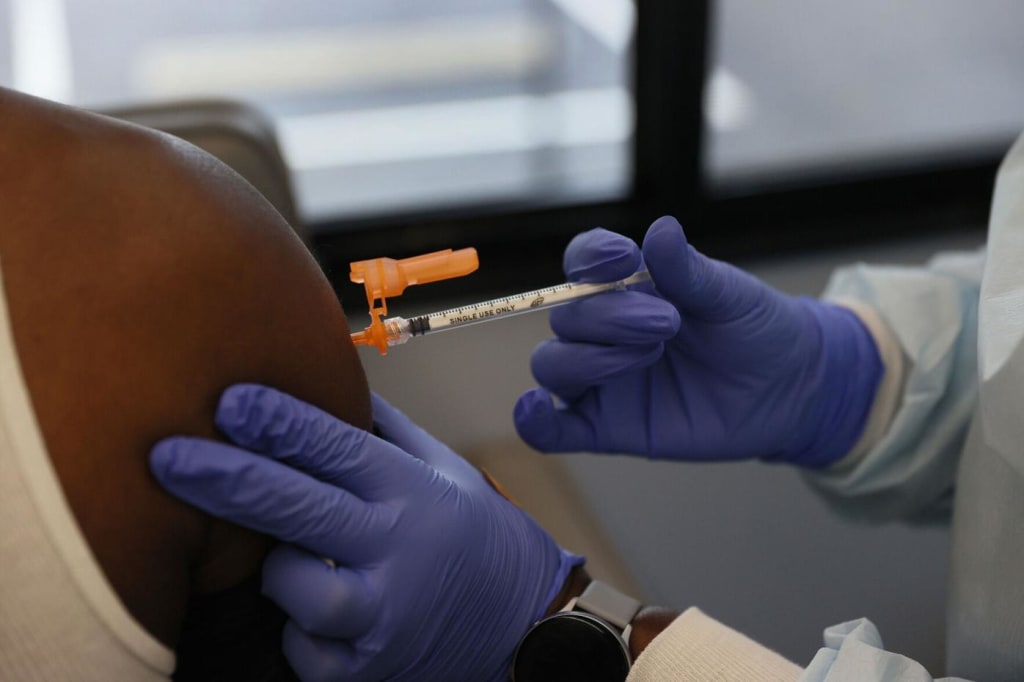Florida Surgeon General Controversy
Allegations of Political Interference and Misinformation Surrounding Vaccine Safety Analysis in Florida

In late April 2021, Politico published an explosive report alleging that Florida's Surgeon General, Dr. Scott Rivkees, had altered the state's COVID-19 vaccine analysis to suggest a higher risk of adverse effects for younger men. The report detailed how Rivkees had overruled a team of medical experts and epidemiologists who had warned against using incomplete data to make such a conclusion, and instead pushed forward with his own interpretation of the data, which suggested that younger men were at a higher risk of experiencing vaccine-related heart inflammation.
The controversy began in mid-April when the Centers for Disease Control and Prevention (CDC) and the Food and Drug Administration (FDA) announced that they were investigating a small number of cases of myocarditis, or inflammation of the heart, among people who had received mRNA-based COVID-19 vaccines. The agencies stressed that these cases were extremely rare and that the benefits of vaccination far outweighed the risks, but they also acknowledged that the majority of cases had occurred in young men under the age of 30.
In response to this news, the Florida Department of Health convened a meeting of its Vaccine Clinical and Scientific Safety Review Workgroup, a panel of medical experts and epidemiologists tasked with analyzing the safety and efficacy of COVID-19 vaccines. The group reviewed the available data on vaccine-related myocarditis and concluded that there was not yet enough evidence to draw any firm conclusions about the risk of heart inflammation in younger men. The group recommended that the state continue to administer the vaccines to all eligible populations and monitor any potential adverse events.
However, according to Politico's report, Dr. Rivkees was not satisfied with this cautious approach. He reportedly ordered the workgroup to revise its analysis and highlight the potential risk to younger men, despite the fact that the available data did not support such a conclusion. Rivkees also reportedly instructed the department to issue a public health advisory warning young men about the supposed risk of myocarditis, even though this advice went against the guidance of both the CDC and the FDA.
Critics of Rivkees' decision argued that it was both premature and alarmist. They noted that the incidence of vaccine-related myocarditis was extremely low, with only a handful of cases reported out of the millions of vaccine doses administered nationwide. They also pointed out that the cases of myocarditis that had been reported in young men were generally mild and easily treated, and that the risk of serious illness or death from COVID-19 was far greater than the risk of vaccine-related adverse events.
The controversy over Rivkees' decision was further exacerbated by reports that he had a history of downplaying the severity of the COVID-19 pandemic and promoting unproven or disproven treatments for the virus. In May 2020, for example, Rivkees had reportedly instructed state health officials to suppress data on the number of COVID-19 cases in Florida in order to avoid panicking the public. He had also touted the benefits of hydroxychloroquine, an anti-malarial drug that had been promoted by then-President Donald Trump as a possible COVID-19 treatment but was later shown to be ineffective.
Critics argued that Rivkees' history of controversial statements and actions made it difficult to trust his judgment on matters related to public health. They also pointed out that his decision to overrule the medical experts on the vaccine safety panel was a clear example of political interference in the scientific process, which could have dangerous consequences for public health.
Despite the controversy, Florida continued to administer COVID-19 vaccines to all eligible populations, and the number of cases of vaccine-related myocarditis remained extremely low. In June 2021, the CDC and FDA issued a joint statement acknowledging that there had been a slightly higher-than-expected number of cases of myocarditis among young men who had received mRNA-based COVID-19 vaccines.






Comments
There are no comments for this story
Be the first to respond and start the conversation.